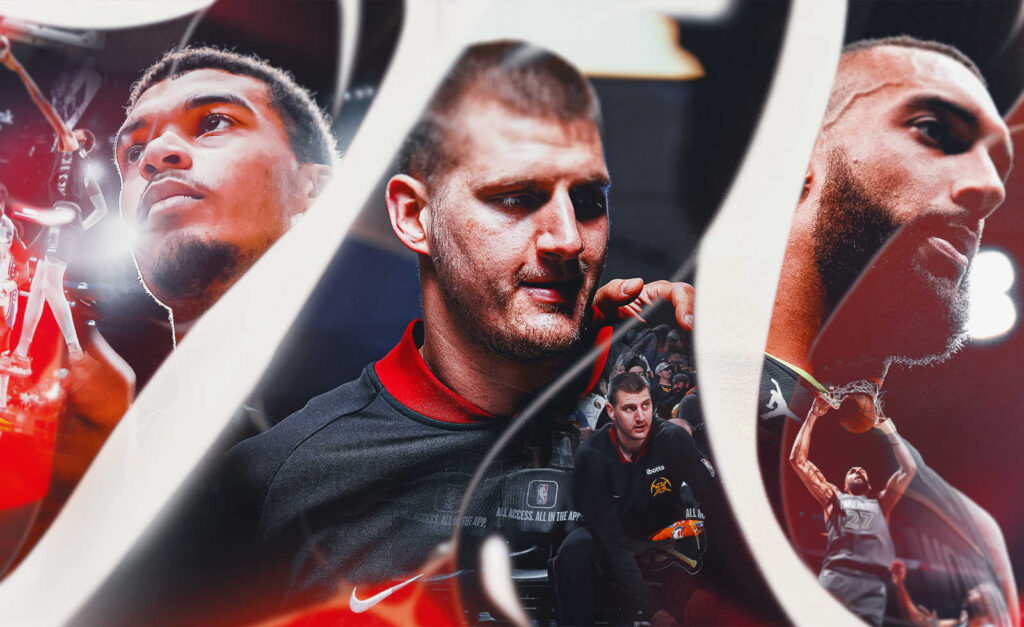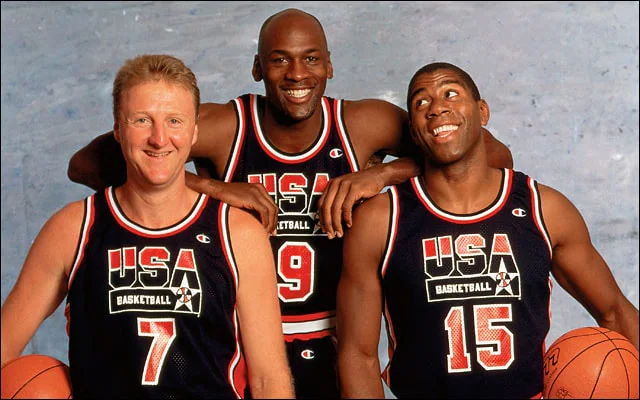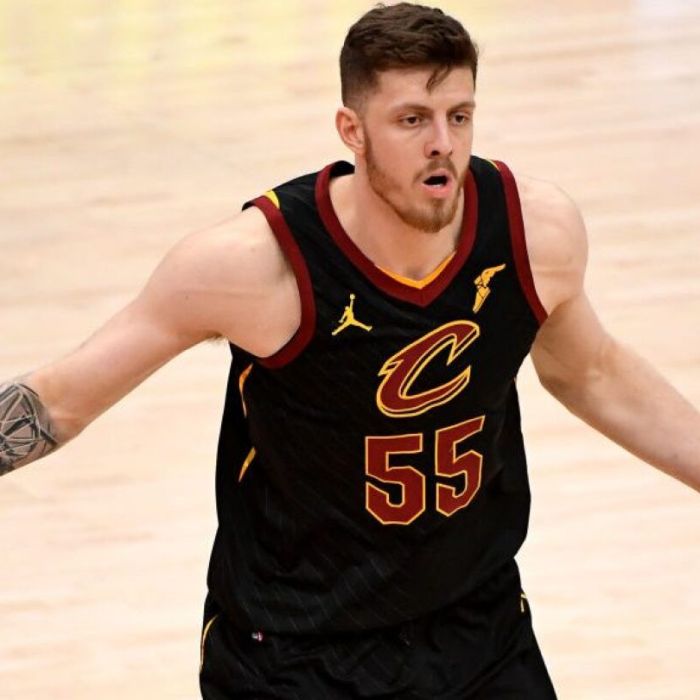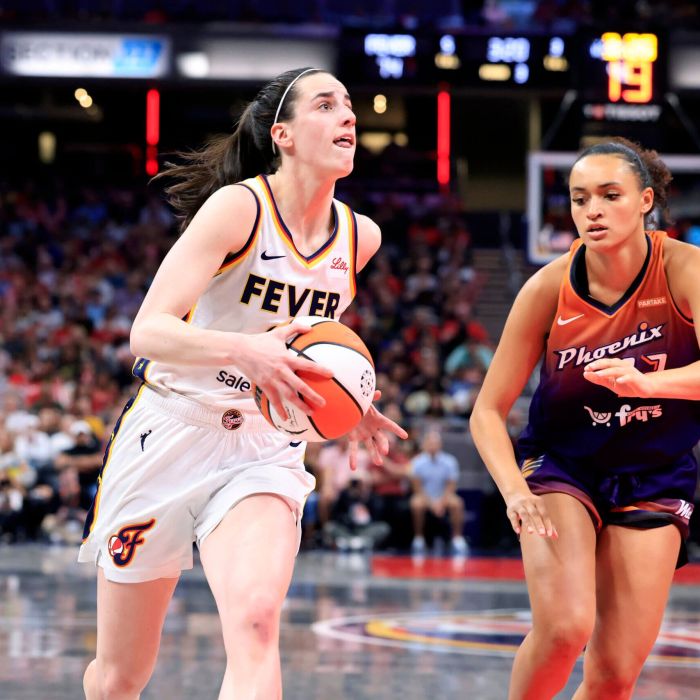The journey from college basketball to the NBA is a dream come true for many young athletes. However, this dream often comes with an unexpected twist: sudden, immense wealth. The transition from playing for free or modest sums to becoming a millionaire almost overnight is a story filled with both opportunities and challenges.
From College Courts to NBA Fortunes
Imagine starting the year playing in college, where you earn nothing aside from NIL deals. Then, just a few months later, you’re drafted into the NBA and become a millionaire. This is the reality for many young athletes, including Alexandre Sarr and Reed Sheppard.
At the start of the year, Sarr was playing in Australia’s NBL, earning around $100,000. Sheppard, meanwhile, was still in college. Fast forward to June’s draft, and both players found themselves among the top picks.
Sarr, now a member of the Washington Wizards, is guaranteed $23 million from his rookie contract. Sheppard, with the Houston Rockets, is looking at a $20 million contract. Both deals have the potential to exceed $45 million.
Even players drafted in the second round, who might not have long NBA careers, are signing multimillion-dollar contracts.
The Double-Edged Sword of Sudden Wealth
While these contracts can transform lives, they also bring significant pressures. Tim Hardaway, a Hall of Fame point guard known for his “killer crossover” dribble, reflects on this reality. “It’s a lot of money coming in,” he says. “A lot of money coming in.”
Hardaway’s career in the 1990s brought him wealth and fame. He earned over $45 million in salary, plus endorsements with major brands like Nike. But with great wealth came great responsibility. Hardaway began supporting his mother financially as soon as he entered the league, a common expectation for many professional athletes who become the primary breadwinners for their families.
Financial Wisdom from a Legend
Despite his newfound wealth, Hardaway was prudent with his money. He avoided extravagant spending and focused on financial security. One of his first purchases was a Jeep Cherokee with limited gold rims, which he fondly remembers as a symbol of his early success. Importantly, Hardaway knew when to say “no” to those asking for money, a skill he credits to his upbringing. “Because of my mom,” he says. “I don’t owe you nothing! I’m not going to give you nothing!”
Hardaway also received valuable advice from his first NBA coach, Don Nelson, a Hall of Famer and five-time champion. Nelson warned him, “This shit goes by very quick. The next thing you know, you’re retired. So, whatever money you make, make sure you take care of it.” Hardaway heeded this advice throughout his career.
The Modern NBA Contract Explosion
In the 2000-01 season, Hardaway earned $12 million while playing for the Miami Heat, making him the highest-paid point guard in the NBA at the time. Despite the large paycheck, Hardaway insists he would have played for free because of his love for the game. Today, he advises his son, Tim Hardaway Jr., who plays for the Detroit Pistons and has earned over $135 million in his career. “I think he’s done a hell of a job,” Hardaway says, praising his son’s financial acumen.
Contracts in today’s NBA are even more staggering. This summer, Boston Celtics star Jayson Tatum signed a $313 million deal. Such enormous sums can be daunting. Larry Johnson, a star for the Charlotte Hornets in the 1990s, signed an $84 million contract that brought high expectations and pressure. He eventually filed for bankruptcy in 2015.
Similarly, former Celtics All-Star Antoine Walker made nearly $110 million in his career but lost it all. Glen “Big Baby” Davis, another Celtics champion, was recently sentenced to 40 months in jail for trying to defraud the NBA after losing his millions.
The Dark Side of Wealth
Larry Sanders, a former Milwaukee Bucks star who signed a $44 million contract in 2013, shared his struggles with managing wealth at a young age. “I come from nothing,” he said. “And then you become the one that has everything. People who are supposed to guide you become your dependents. And you’re too young for that.” Sanders felt isolated and unsupported, both in the league and in his personal life.
The NBA has improved its efforts to educate players about financial management, but the lessons are often learned the hard way. ESPN’s 2012 documentary Broke highlighted numerous cases of athletes from various sports losing their fortunes due to poor financial decisions. The film featured stories of failed business investments, child support payments, and extravagant spending on mansions, cars, and jewelry.
Financial Education and Support Systems
Former Seattle SuperSonics All-Star Detlef Schrempf, who now works for Coldstream Wealth Management, advises young players on financial matters. He emphasizes the importance of hiring a registered investment advisor, separating finances from representation, and building a solid financial plan. “Education is the key,” Schrempf says. “The right professional relationships will help you clarify your goals.”
Bob Whitsitt, a former NBA general manager, has seen both the successes and pitfalls of athletes handling sudden wealth. He recalls players making lavish purchases, like flying a spouse across the country just to get their hair done or buying expensive watches for friends. “It’s like somebody winning the lottery,” Whitsitt says. “Statistically, many people who win the lottery go broke. They’re not prepared to get this enormous amount of money.”
Success Stories and Cautionary Tales
Yet, there are success stories. Hall of Famer Dave Bing invested in the steel business, and Junior Bridgeman, who never made more than $350,000 in a season, now has a net worth of $600 million thanks to smart investments in media and fast food. For every tale of financial ruin, there are examples of athletes who have managed their money wisely.
Today’s rookies have more resources to help them navigate their newfound wealth. Victor Wembanyama, the reigning Rookie of the Year, chose to buy a Millennium Falcon Lego set as his first purchase rather than indulging in luxury items.
Jaren Jackson Jr., Memphis Grizzlies’ Defensive Player of the Year, invested a significant portion of his earnings early on. Miami Heat’s Tyler Herro, the 2021-22 Sixth Man of the Year, understands the importance of his contract setting him up for life. Portland’s rookie point guard Scoot Henderson even took finance classes to prepare for his NBA career.
The Importance of Financial Prudence
“Money comes with playing basketball,” Hardaway reflects. “You got to have that money. But if you don’t go out there and do your job, you’re not going to get [paid]. At times I was good at [saving], at times, I wasn’t. [Investing] will help you out in the long run. [Taking financial classes will teach you] about everything that you’re supposed to know about being a grown man. Some people listen and some don’t.”
The journey from college athlete to NBA star is exhilarating, but it’s also fraught with challenges. With the right guidance and a focus on long-term financial health, today’s rookies have a better chance than ever to turn their sudden wealth into lasting prosperity.





